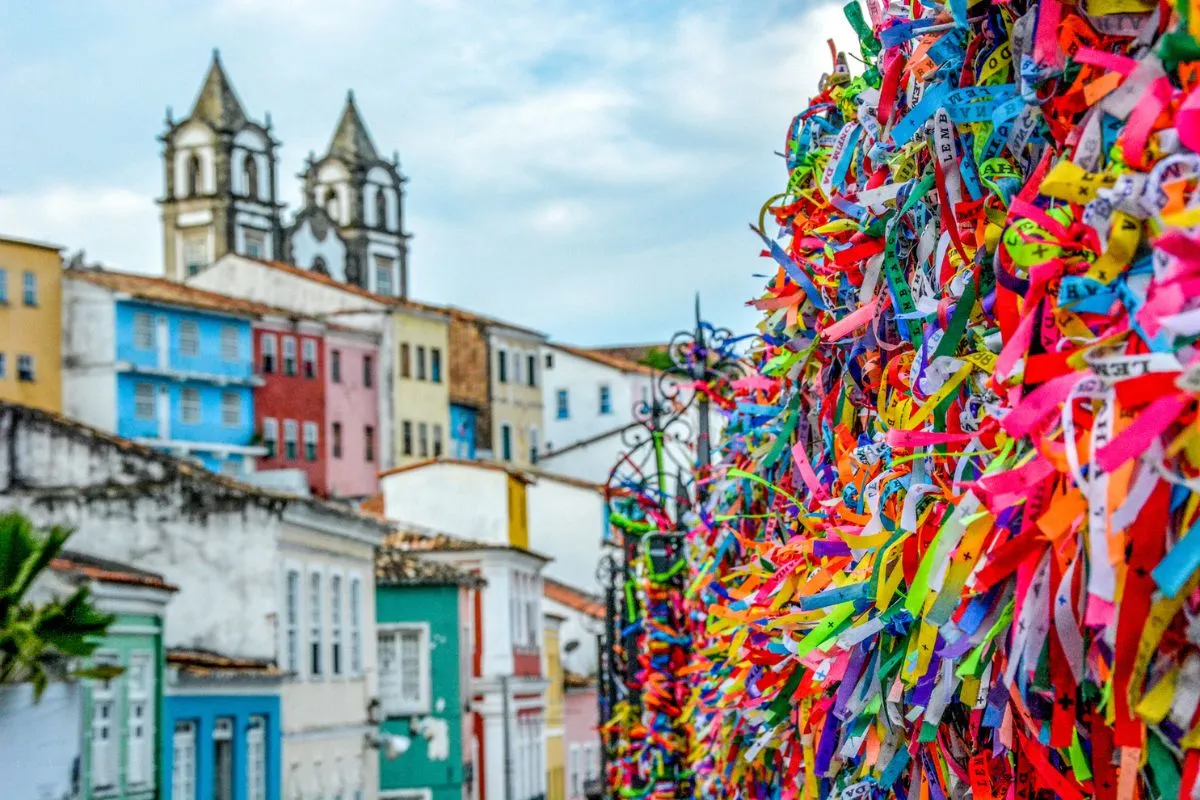**Discover Salvador: Brazil’s Blackest City**
Salvador, the vibrant capital of Bahia, is known as the “Blackest City” in Brazil, both for its predominantly Afro-Brazilian population and its deep cultural roots in African traditions. A visit to Salvador is an immersion into a city where history, culture, and the African diaspora are beautifully intertwined.
### A Brief History
Founded in 1549, Salvador was the first capital of Brazil and quickly became a central hub in the transatlantic slave trade. Enslaved Africans were brought to Salvador in large numbers, and their influence is evident in every corner of the city today. The African heritage in Salvador is not just a part of its history; it is its soul. From music and dance to religion and cuisine, the African influence is a living, breathing part of Salvador’s identity.
One of the most significant contributions of Afro-Brazilian culture is Candomblé, a religion that blends African spiritual traditions with elements of Catholicism. The vibrant energy of Salvador is palpable during its festivals, especially Carnival, where African rhythms and dances like samba and capoeira take center stage.
### Must-See Attractions
**1. Pelourinho**
The historic center of Salvador, Pelourinho, is a UNESCO World Heritage Site, known for its colorful colonial architecture and cobblestone streets. Once the heart of Salvador’s slave trade, it is now a symbol of resistance and resilience. Don’t miss the chance to visit the São Francisco Church, a baroque masterpiece adorned with intricate gold leaf, and explore the local shops and galleries that showcase Afro-Brazilian art.
**2. Mercado Modelo**
For a taste of Salvador’s vibrant culture, visit the Mercado Modelo, a bustling market where you can find traditional crafts, art, and souvenirs. The market is also a great place to experience Bahian cuisine, with dishes like acarajé (a deep-fried ball of black-eyed pea dough filled with shrimp) being a must-try.
**3. Igreja de Nosso Senhor do Bonfim**
One of Salvador’s most iconic landmarks, the Igreja de Nosso Senhor do Bonfim, is a symbol of faith for many Bahians. The church is famous for its “Fita do Bonfim,” colorful ribbons that are tied to the church’s gates by visitors, each ribbon representing a wish or prayer. The annual Bonfim Festival, held every January, is a major event that combines religious devotion with lively street celebrations.
**4. Dique do Tororó**
The Dique do Tororó is a serene park surrounding a lake, featuring large statues of Orixás, the deities of Candomblé. It’s a peaceful place to reflect and learn more about the spiritual beliefs that have shaped Salvador’s culture.
**5. Museu Afro-Brasileiro**
Located within the Federal University of Bahia, the Museu Afro-Brasileiro offers a deep dive into the history and culture of Afro-Brazilian people. The museum’s collection includes everything from traditional African art to artifacts related to slavery and the cultural contributions of Afro-Brazilians.
### Experience Salvador
Salvador is more than just a city; it’s an experience. From its music and dance to its food and religious practices, Salvador offers a unique opportunity to explore the rich tapestry of African influence in Brazil. Whether you’re strolling through the streets of Pelourinho, enjoying a capoeira performance, or savoring the flavors of Bahian cuisine, Salvador is a city that captures the essence of Brazil’s African heritage.
Don’t miss out on the opportunity to immerse yourself in the history, culture, and vibrant life of Salvador – a city that proudly carries the title of Brazil’s Blackest City.

